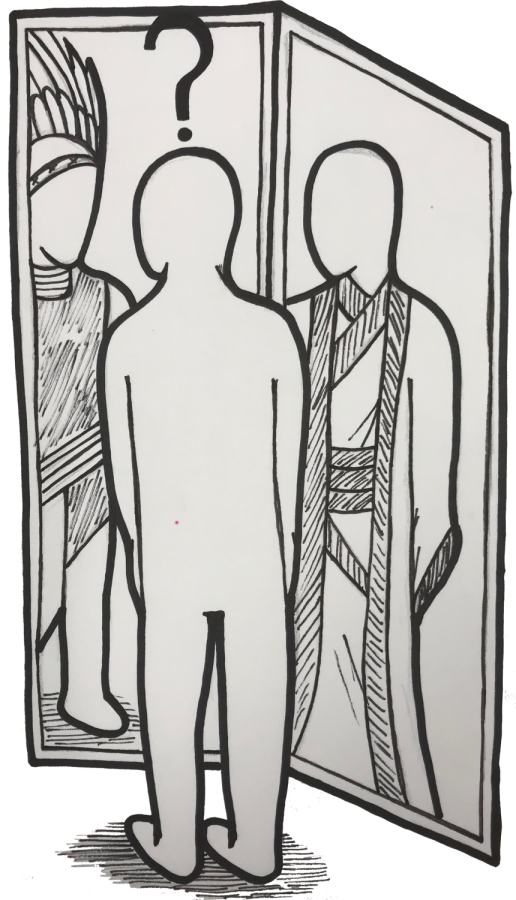Pacific Islander Princess Moana from Disney’s new hit movie has inspired many because of her empowering role. Like with all Disney hits, Moana inspired countless children’s Halloween costumes. But, online chatter made many parents fear the outcry that would come with their 3 year old dressed as Moana. All on account of cultural appropriation.
Being inspired by another culture is a beautiful thing. It prompts growth in diversity and the spreading of that culture. The different ideas and traditions of cultures are very valuable and meaningful to those of the culture. This is where cultural appropriation comes in. When one culture takes aspects from another culture without permission or uses elements outside of the original cultural context, it is appropriating the culture.
Children dress up as Moana because they are inspired by her strength and the empowering female figure that she represents. The recent complaints about dressing up like Moana being cultural appropriation completely missed the mark and created a problem out of nothing. Kids are just expressing this figure the same way that Disney has represented this character, but because prejudice still exists today, many claimed that Moana costumes were cultural appropriation and therefore inappropriate. Moana is a children’s movie, and these children do not have any intention to misrepresent anyone’s culture.
This issue is controversial because it is hard to define the fine line between appropriation and being overly sensitive. The Moana case is one of the circumstances in which the fine line of cultural appropriation and sensitivity has been overstepped.
Even though cultural appropriation is most recognizable during the Halloween season, instances outside of costumes occur quite often. Even celebrities have appropriated cultures. In 2013, Katy Perry was accused of appropriating Japanese culture when she wore a traditional Geisha kimono in her performance at the Video and Music Awards. In Japanese culture, the kimono worn by a Geisha is a very special tradition, and Katy Perry’s representation of it was thought to be culturally insensitive, especially because she is not of Japanese descent. However, she did apologize and admitted it was an innocent mistake.
In 2012, Victoria’s Secret model Karli Kloss was also accused of cultural appropriation when she walked the runway at the VS Fashion Show with a Native American headdress. In Native American culture, the headdress is reserved for elders who have worked hard to earn it. The company did, however, apologize for offending anyone.
Cultural appropriation is often an innocent mistake, and the best way to avoid it is to educate ourselves about it to prevent any more unnecessary conflict.
Yet, people sometimes appropriate culture intentionally for their own benefit. Back in 2015, there was an incident concerning former leader of the Spokane, Washington chapter of the NAACP, Rachel Dolezal. After being a leader and supporter of the organization for a year, Dolezal’s parents came forward and blew her cover. She had been impersonating an African American woman throughout her career with the NAACP. Not only did she lie about her ethnicity, but she also falsely claimed to have been attacked by hate crimes. Dolezal created these phony characteristics and stories about herself to become a leader and for personal benefit. Although she supported equality for people of color, she was committing fraud and appropriating culture at the same time. By taking bits and pieces of African American culture to compose a fake backstory about herself, which her parents confirmed was entirely untrue, Dolezal was disrespecting the culture.
The appropriation of cultures can also be food related. Sophomore Jasmine Tang’s family owns a Vietnamese cuisine restaurant, Saigon Flavors. Tang confirmed that there truly is a difference between authentic Vietnamese cuisine and inauthentic adaptations.
“When you eat inauthentic cuisine you taste it right away,” Tang said. “The amount of care that goes into making it is unmatched by anything else. You notice the amount of attention that goes into how each ingredient is prepared and you just don’t get that from inauthentic adaptations.”
Tang also explained that all of their traditional dishes can only be made from knowledge passed down through generations.
“With most traditional dishes that are made, that knowledge of the food can only be learned from knowledge that has been passed down through generations,” Tang said. “Those cooking techniques and ingredients are not something that you can learn and recreate by simply researching a recipe online.”
Tang did however say that as long as the staff and owners are not disrespecting the culture, she does not consider it cultural appropriation.
Even though some people purposefully disregard the line and appropriate culture for self gain, it is still possible to lessen the occurrence of cultural appropriation. The best thing we can do to prevent unintentional appropriation is learn about other cultures and the importance they devote to their ideas and traditions. The fine line is a very hard one to define and in educating ourselves and those around us, we can stand on the safe side and have the ability to be inspired.







